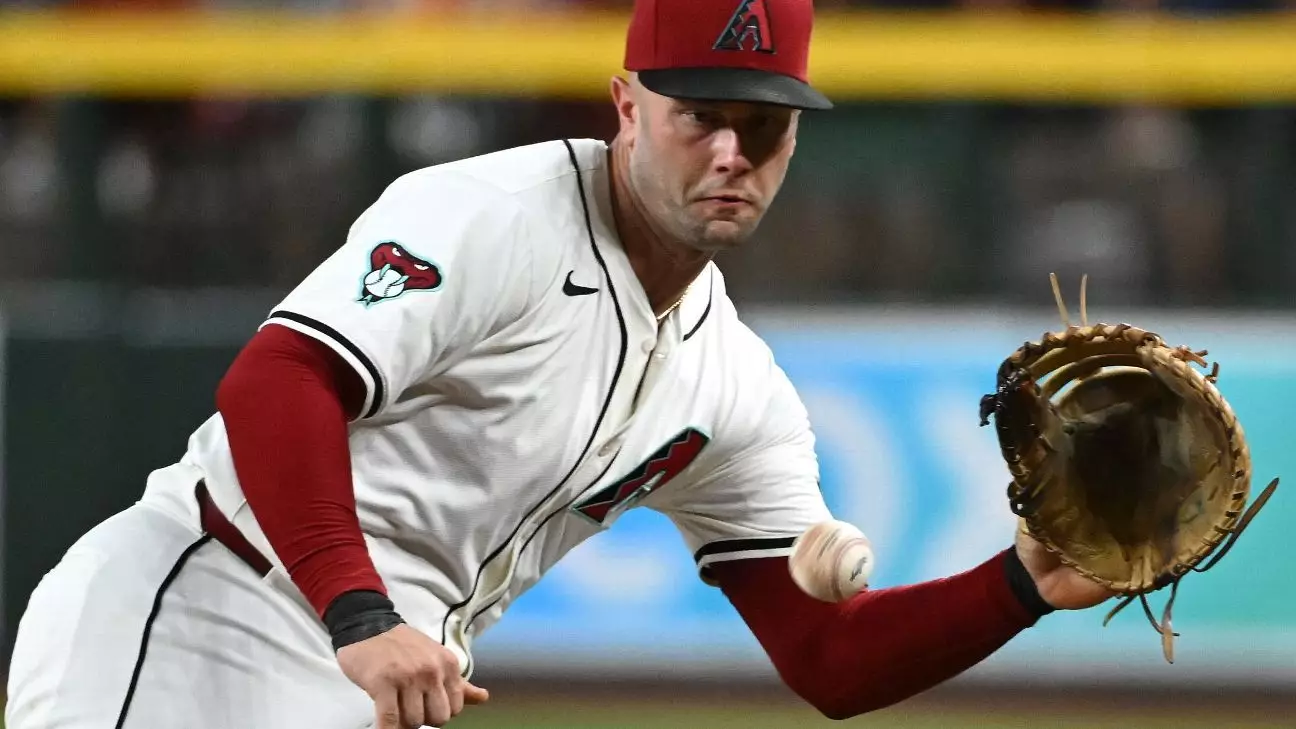The recent decision by the Houston Astros to sign free agent first baseman Christian Walker to a lucrative three-year, $60 million contract signifies a substantial shift in the team’s roster dynamics. As confirmed by sources to ESPN, this signing is reportedly contingent on a successful physical examination, setting the stage for what seems to be a pivotal adjusting point for the franchise. This acquisition might indicate that the Astros are moving past Alex Bregman, a cornerstone of their success, in a transition that could redefine the team’s identity in the competitive landscape of Major League Baseball.
The arrival of Walker, a seasoned player known for his impressive defensive skills and power-hitting capabilities, inevitably raises questions about the future of Alex Bregman in Houston. Bregman has not only been a key player but also a significant contributor to the Astros’ championship pedigree, having won two titles and participated in multiple ALCS over recent years. With Walker filling the first base role and promising young infielder Isaac Paredes potentially stepping into the third base position, the likelihood of Bregman seeking opportunities elsewhere seems increasingly real. As the club transitions, it faces the delicate task of balancing nostalgia with the demands of roster optimization.
Christian Walker’s reputation as a top-tier defensive first baseman positions him as a potential game-changer for the Astros. Over the past three seasons with the Arizona Diamondbacks, Walker has demonstrated consistent performance, notable for hitting .250/.332/.481 while amassing 95 home runs and 281 RBIs. His defensive prowess, highlighted by three Gold Glove Awards, renders him an attractive asset, particularly for an Astros team that struggled for offensive production from the first base position in recent seasons. Last season, Houston first basemen collectively managed a dismal .651 OPS, underscoring the dire need for improvement. Walker’s presence is anticipated to not only bolster the team’s defense but also revitalize its batting order, particularly in the advantageous environment of Daikin Park.
While the signing of Walker marks a hopeful new beginning, challenges loom on the horizon. The Astros must swiftly address gaps in the outfield created by the departure of Kyle Tucker, who is set to enter free agency next year. This presents a complicated dilemma; they must not only strive to maintain competitive performance but also navigate the complexities of a rapidly evolving roster landscape. With a multitude of teams, including titans like the New York Yankees and Boston Red Sox, eyeing Bregman, Houston must be prepared for the repercussions of a possible front-office shakeup.
General manager Dana Brown has expressed optimism about retaining Bregman, underscoring the organization’s recognition of his invaluable contributions. However, discussions have stagnated over financial demands that exceed $200 million, illustrating the fiscal constraints that even prosperous teams can encounter. With their unsuccessful overtures for Nolan Arenado serving as a cautionary tale, the Astros have shifted their focus to securing Walker as a strategic measure. Although Walker represents a solid investment, the team will incur draft penalties, sacrificing their second- and fifth-round picks, and reducing their international spending power as a consequence of exceeding the luxury tax threshold last season.
The Houston Astros’ acquisition of Christian Walker signals a critical evolution within the franchise as it navigates the complexities of player negotiations and strategic roster construction. Fans and analysts alike will watch closely as this chapter unfolds, balancing hope with uncertainty about what lies ahead for both Walker and Bregman. The Astros stand at a crossroads, where the decisions they make will have lasting implications not just on the coming season but on the franchise’s future trajectory.


Napsat komentář